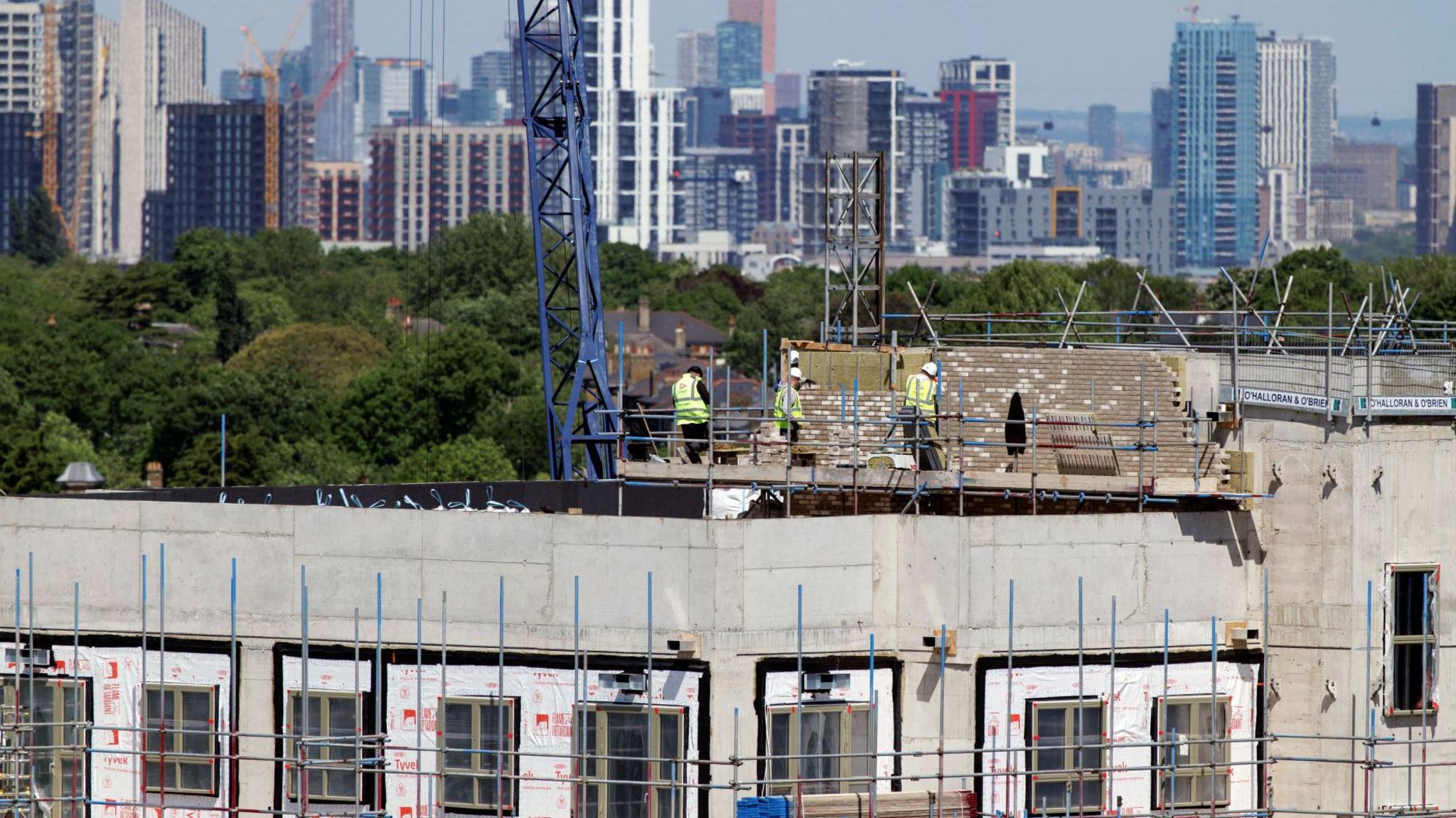Tenants to stop paying rent over persistent cracks
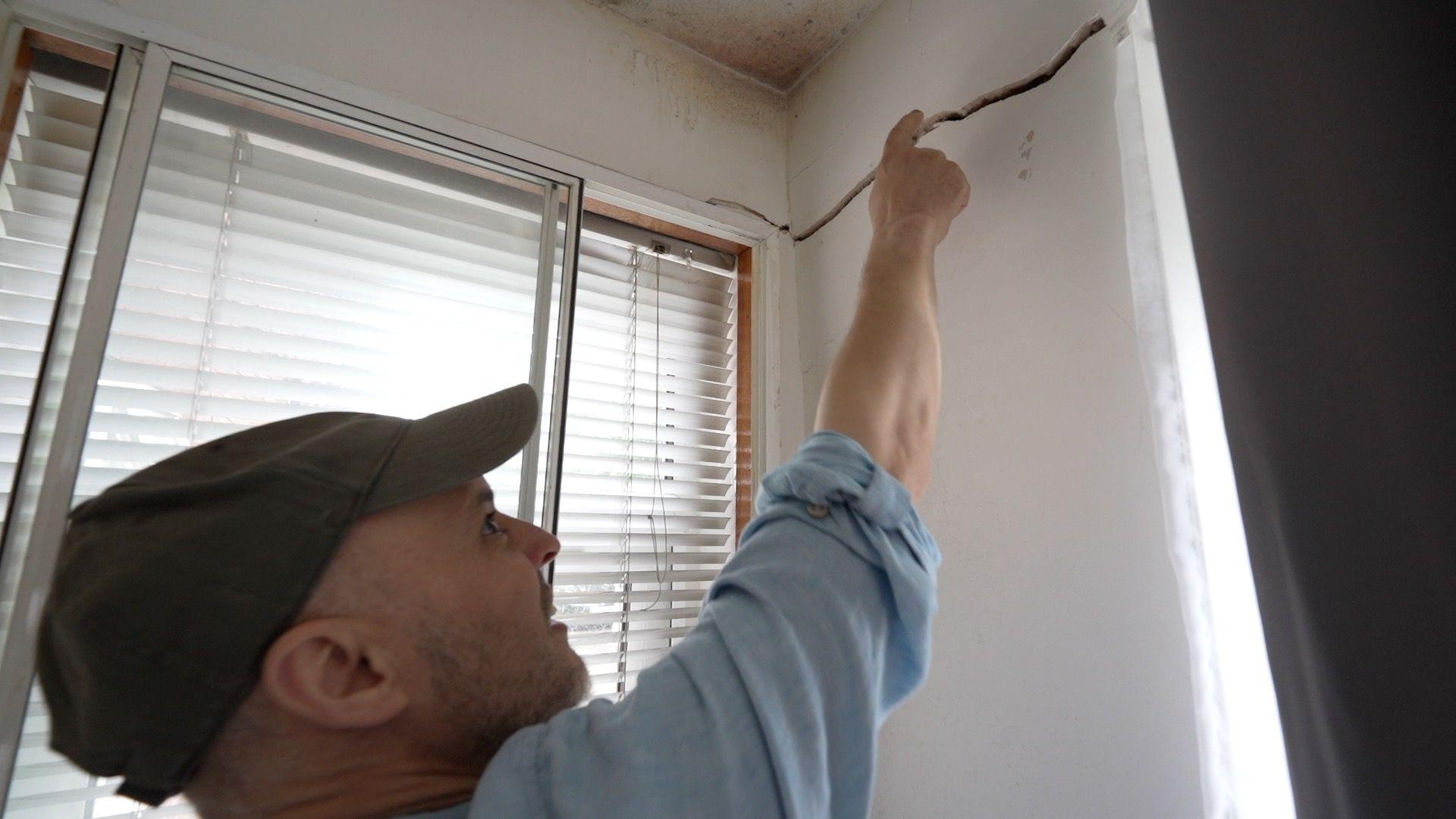
Hanger View Way resident Adam Hamden points to a large crack near his window, one of many throughout his home in Ealing
- Published
For years residents of a block of flats in west London have been dealing with cracks in their walls and no amount of plastering seems to keep them from reappearing.
"The cracks have got bigger and this wall has moved out as you can see at the bottom there," says resident Mick Brady, who has lived in his housing association flat in Ealing for 12 years.
Now their patience has run out and some have decided to withhold their rent.
Mick, who is disabled, is one of them.
"I've got to the stage where I think its the only course of action I can do," he explains.
"The [housing association] are in breach of contract. I will go to court. I think I would win the case. Any judge would throw it out."

Mick Brady has been moved between flats while repairs are carried out, but the cracks keep coming back
I first visited Mick three years ago, when he contacted BBC London in desperation at the condition of his flat, run then by Catalyst Housing.
He had been moved from one flat into another to allow work to repair large cracks that appeared in his wall and had become bigger and deeper.
Similar cracks, following the same trajectory, had appeared on the neighbouring homes on the same side and also in the flats above.
As soon as the housing association re-plastered and repainted the cracks, they reappeared, leaving Mick and his neighbours to suspect subsidence.
He's back in his original flat, where the cracks are appearing again, as they have been, he says, for more than 20 years.
Mick shows me some letters sent to another resident on 24 November 2003 by a previous landlord about possible subsidence at the block.
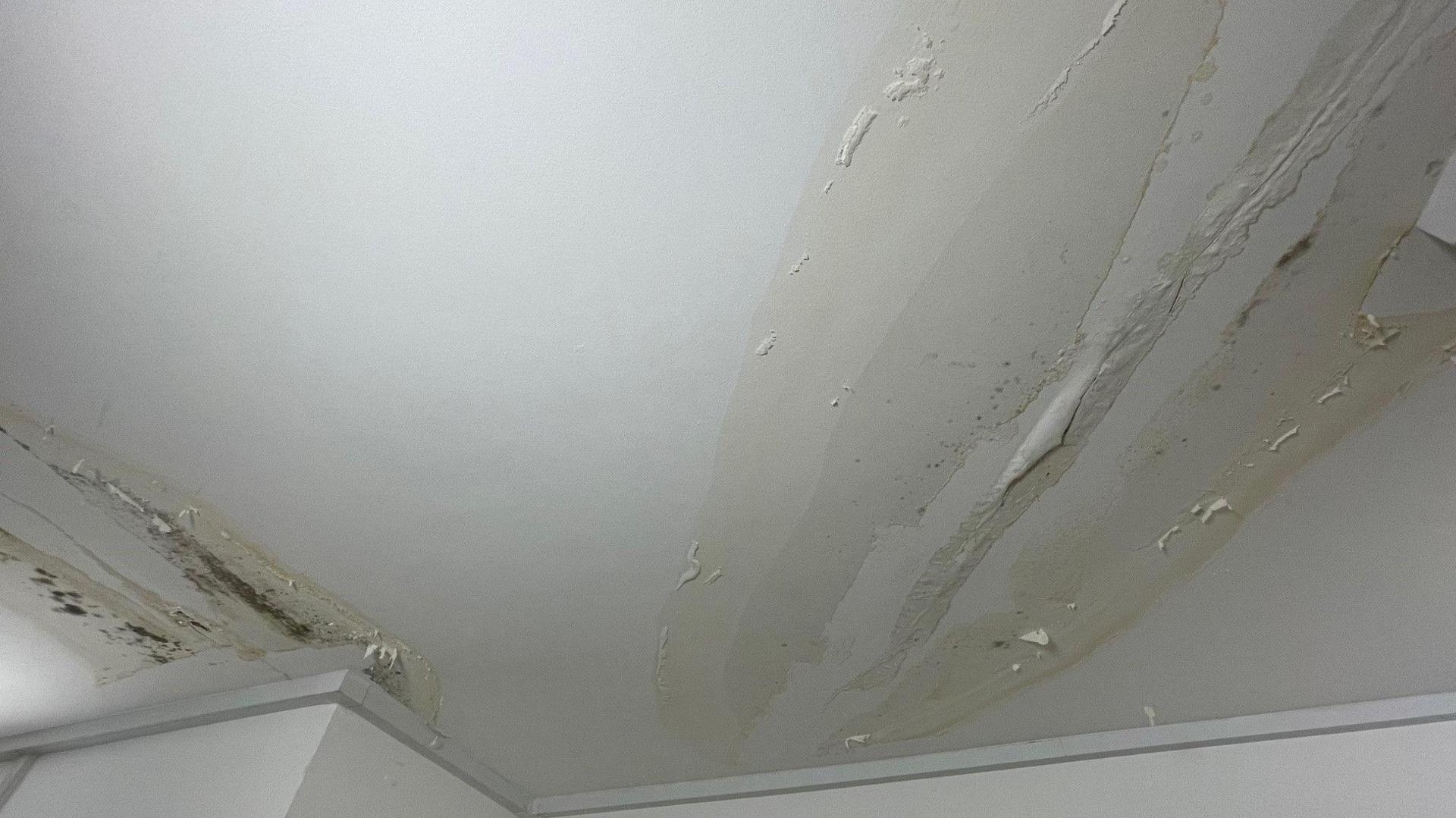
The ceiling in the ground floor corridor is leaking water
The flats are a combination of social housing and leasehold, with some occupied by tenants or owners, while others are rented out by private landlords.
The block is currently owned by Peabody, which told me it suspected tree roots might be the cause of the cracking.
A tree was removed, but the cracks came back.
It says to solve the problem, a tree preservation order would need to be lifted by the council.
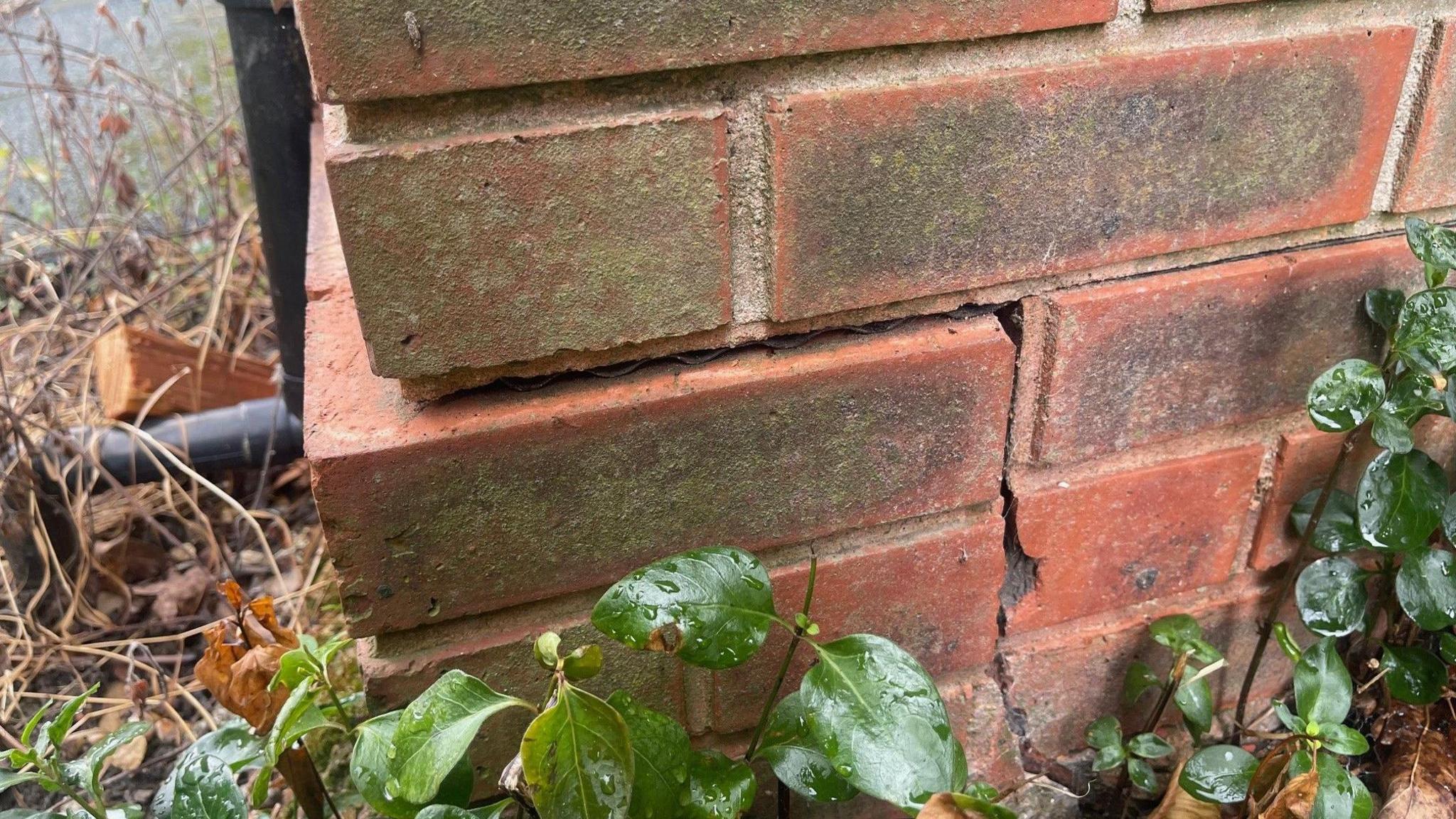
Some of the bricks at the bottom on the exterior walls have moved outwards
At private tenant Adam Hamden's flat, the bottom four rows of bricks on the exterior are protruding noticeably from the wall.
Adam can no longer close his patio doors properly.
"Because of the ground movement, the walls are distorted and I can't close the door any more," he said.
He shows me how he holds a garden trowel in the top corner to hold the door straight so he can lock his door. He's also having problems closing his kitchen window.
Three years ago when I visited, he had a crack in his wall so deep he could poke a knife from the kitchen to the bedroom. Despite re-plastering work and a new paint job, that same crack is coming back.
Hasn't it been fixed in three years? I ask.
"Well that's the same crack in the same pattern. They just decorated and plastered and put in some metal mesh," he explains.
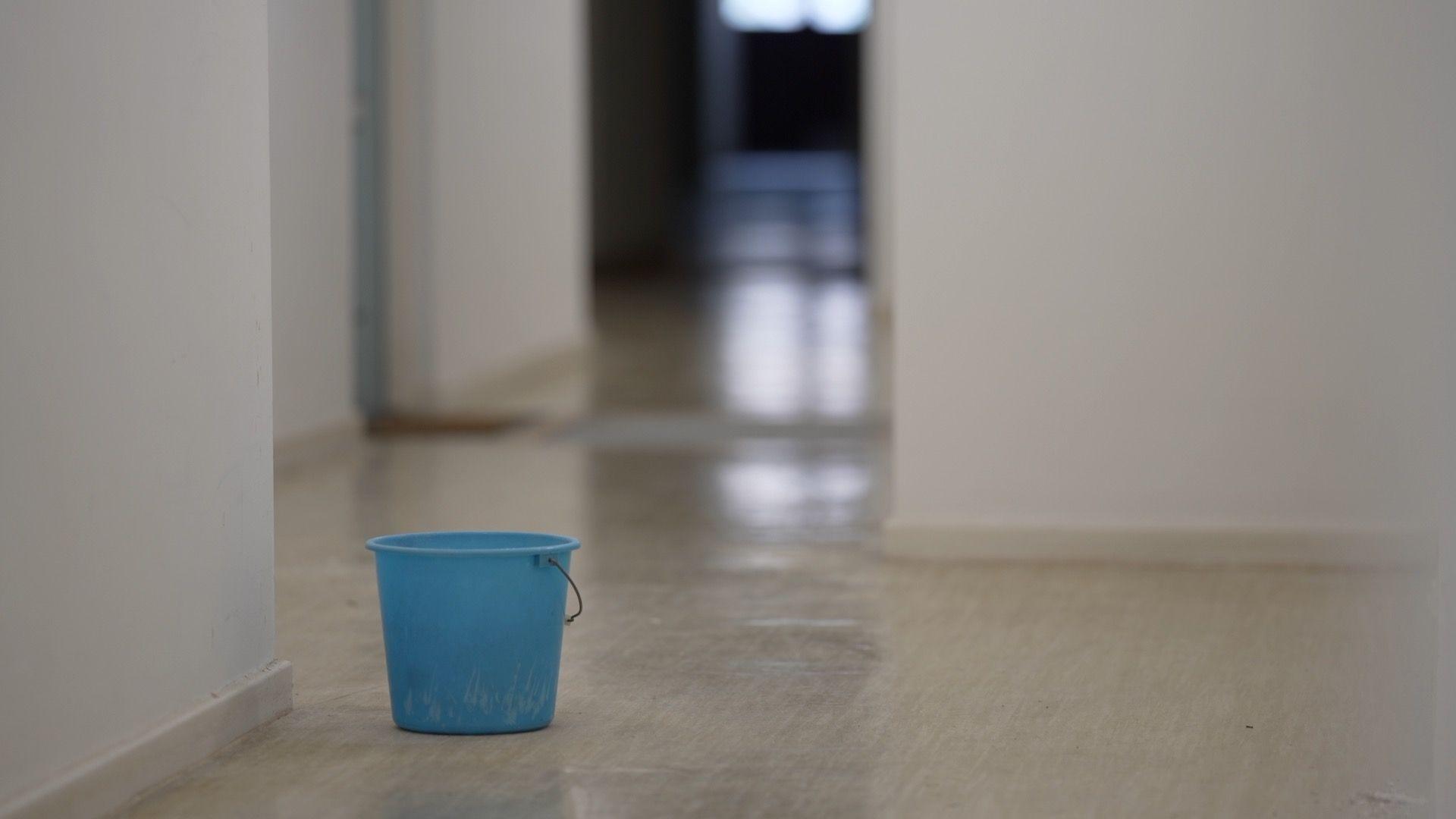
Water is dripping through the ground floor corridor, causing mould and peeling paint
In the ground floor corridor between the properties I meet leaseholder Donna Shepherd. A blue bucket is catching drips of water coming through from the floor above.
There's a large damp patch on the ceiling, some black mould, and the paint is bubbling and flakes are collecting on the floor.
The housing association admits there is some asbestos in the ceiling, but says it is low risk.
"For water to leak through the concrete it just tells you how long this problem has been going on for," she says.
Donna bought her flat five years ago, and has taken great pride in decorating it beautifully, but is wondering if it was the right decision to buy.
"I pay a very expensive service charge and as far as I'm aware and through my deeds, the housing association Peabody are responsible for upholding their side of accountability for the maintenance of the building. And they're not doing it."
She too is thinking of withholding money.
"I will stop paying my service charge."
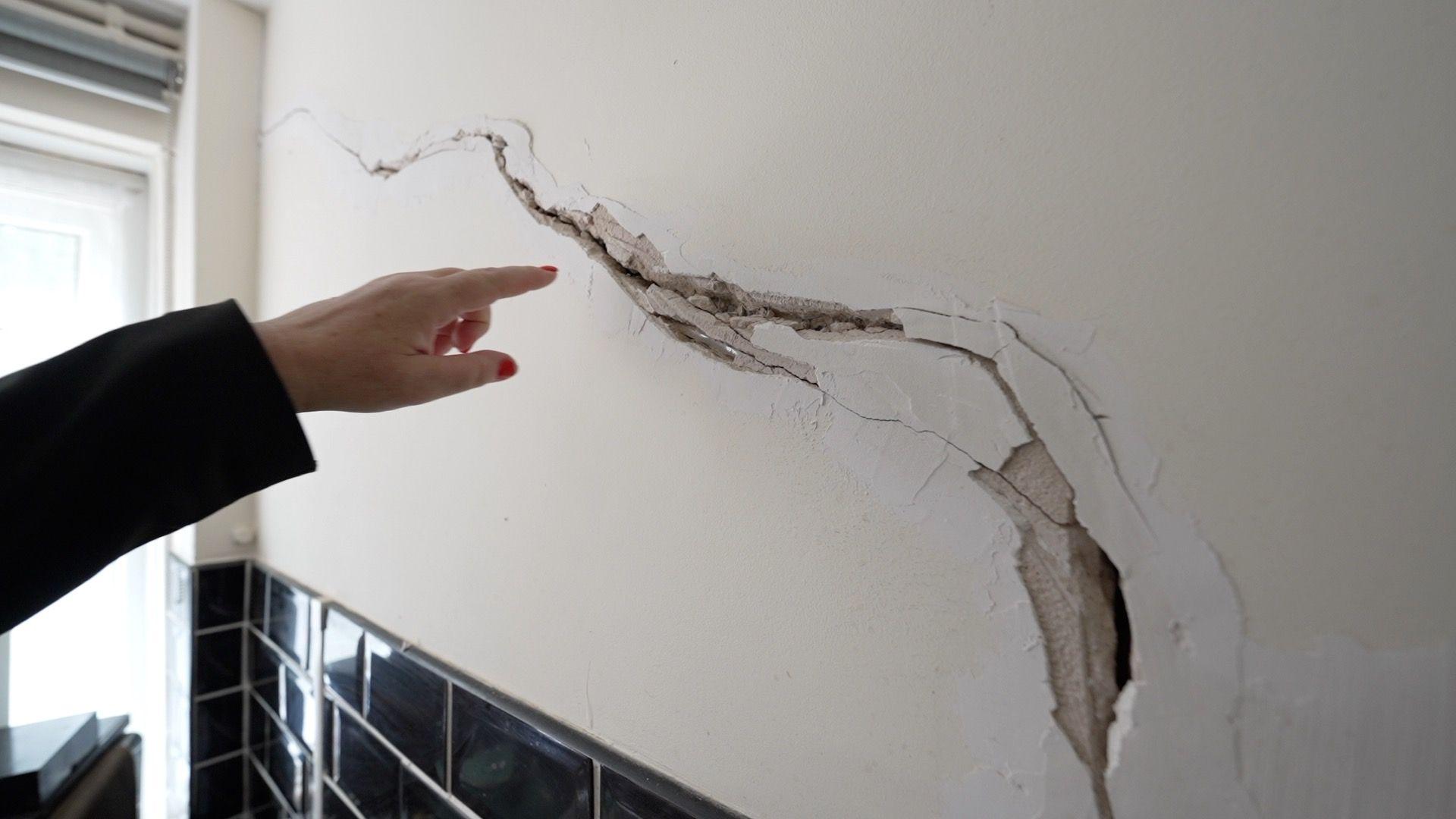
A crack in one of the walls is so deep you can fit the tip of a finger in it
Housing lawyer Giles Peaker, a partner at Anthony Gold Solicitors LLP, says withholding rent can be risky.
"In law the landlord's breach of the tenancy doesn't allow you to breach your side of the tenancy.
"The landlord could come after you with a money claim for the arrears or even possession proceedings based on rent arrears.
"You might have a counter-claim for the disrepair but it may or may not cover all the arrear, so it's a pretty risky approach."
Mr Peaker's advice for anyone faced with this situation was to "first of all, complain".
"Then you could with go to the Housing Ombudsman or you could look at getting a solicitor and a County Court claim for an Order For Works, and damages compensation for living with the disrepair."
In statement, Peabody said: "We understand that cracks are really worrying and have written to residents to reassure them their homes are safe. This was confirmed by structural engineers who inspected the building again today."
It said a few years ago, it dealt with the original subsidence by removing the tree causing the problem and carried out repairs but at the end of last year, cracks began to reappear.
"Our insurers have been monitoring the situation, and we believe nearby trees may now be the cause," the statement added.
"A Tree Preservation Order would need to be lifted by the council before we can remove them. To do that, we need to be certain the trees are the problem. Our insurer's final monitoring report is expected next month, then we can apply to the council to remove the trees."
Peabody has sent its own surveyors to look again at both the subsidence and other issues residents have reported, they said.
"We'll be tackling all urgent repairs straight away and will carry out permanent repairs once the trees have been removed.
"We know we've not always communicated as clearly as we should have and are determined to put that right while working towards a lasting solution. Our local team will be visiting Hanger View Way to speak to residents every week."
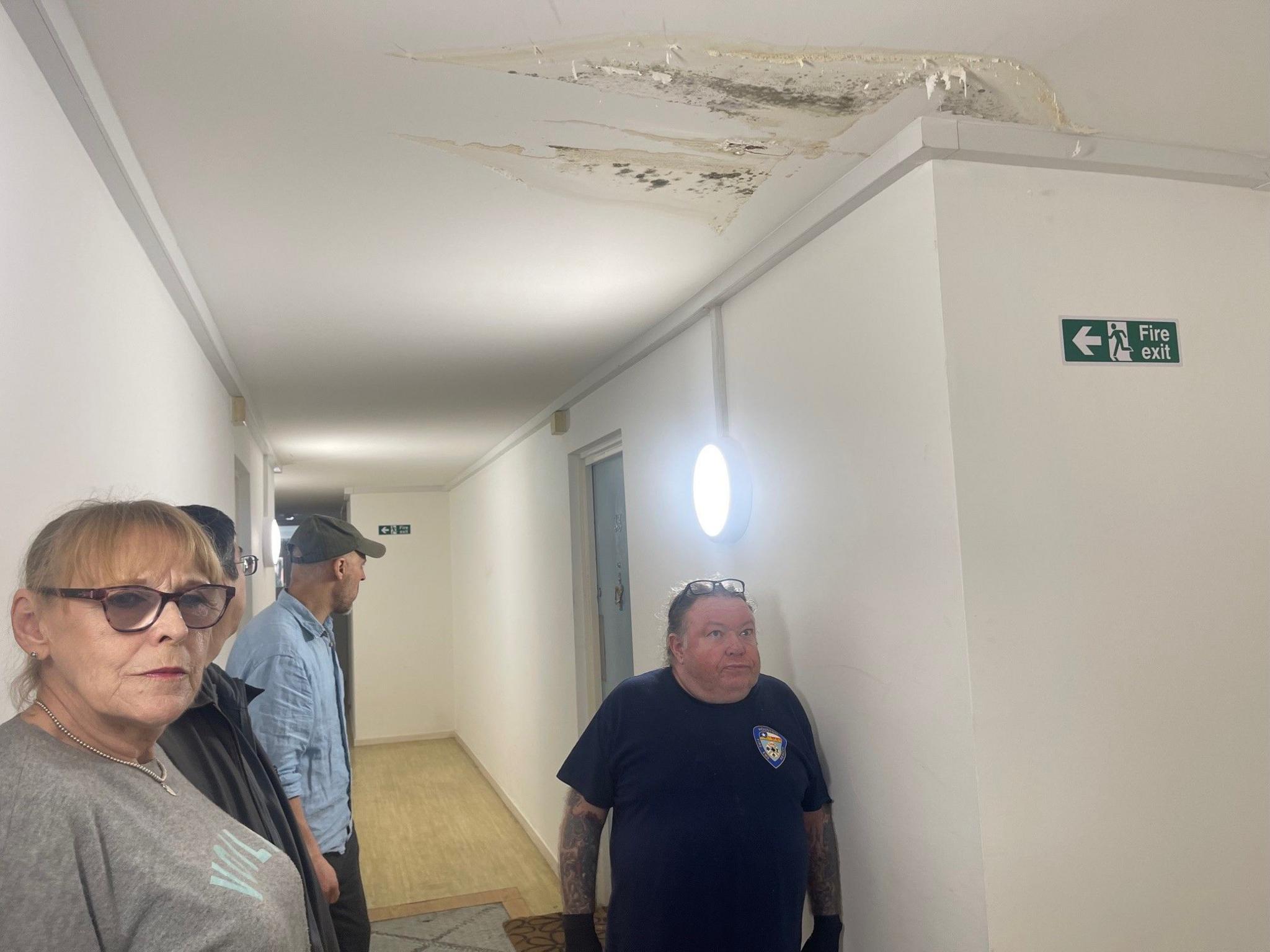
Residents remain unconvinced the leaks and subsidence are caused by trees outside the property, and believe flats may need underpinning
But the residents believe the flats need more than just another tree removal to fix the issues, and patience - and trust - is running out.
Related topics
Related stories
- Published2 September
